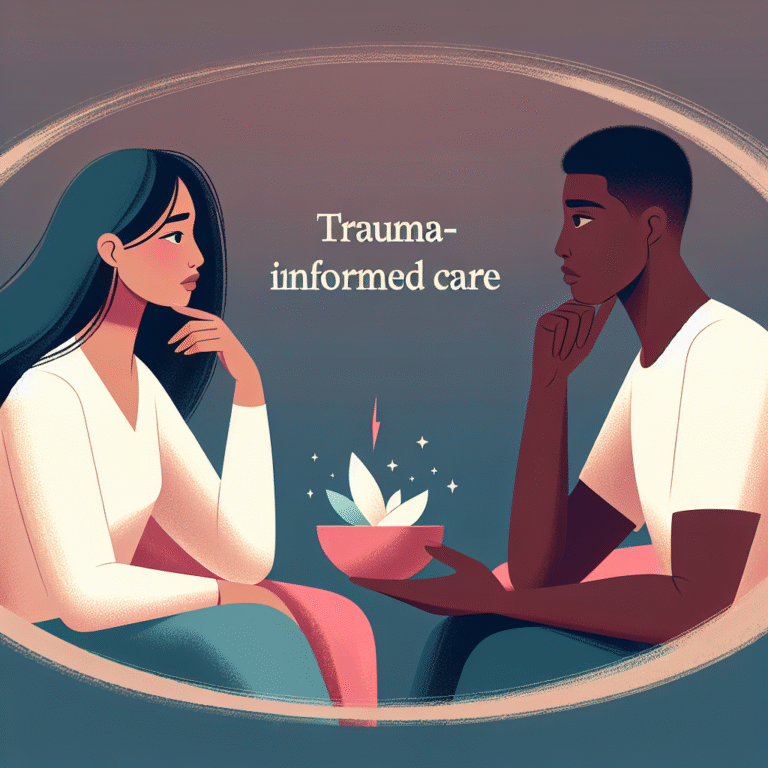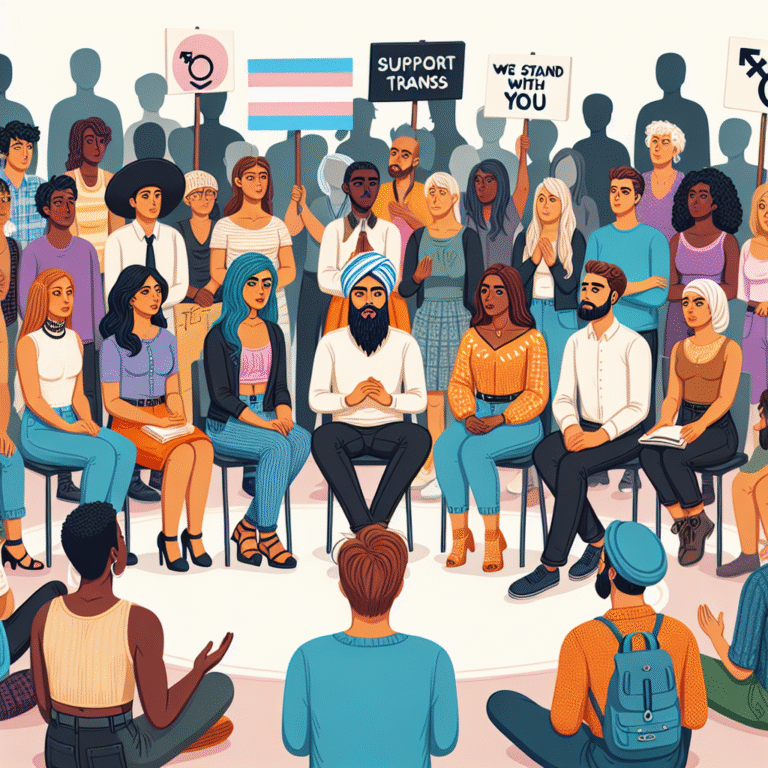
The Ultimate Showdown: Group Therapy vs. Individual Counseling—Which Helps Battle Social Anxiety Best?
Introduction
Social anxiety can feel like a suffocating blanket, keeping individuals isolated from the world around them. For those grappling with it, the road to recovery can be daunting, leaving many to ponder a crucial question: Group Therapy vs. Individual Counseling: Which Helps Battle Social Anxiety Best? Understanding the strengths and weaknesses of each approach can empower individuals to make informed decisions about their journey toward healing.
In recent years, mental health awareness has surged, pushing therapy into the mainstream conversation. Yet, when it comes to tackling social anxiety, there’s still confusion. Is it better to share experiences in a group setting or to seek personalized attention from a therapist? Let’s delve deeper into both modalities to uncover insights that could redefine your journey to overcoming social anxiety.
The Nature of Social Anxiety
Before we dive into the merits of both therapies, it’s essential to understand what social anxiety is. Defined as an intense fear of social situations where one may be judged or scrutinized, social anxiety can manifest in various ways—fear of public speaking, avoidance of social gatherings, and even difficulty forming relationships. This pervasive fear affects millions, making it an important topic for discussion.
The Struggles and Symptoms of Social Anxiety
Social anxiety often presents a unique set of challenges that can include:
- Avoidance of Social Situations: Many individuals go to great lengths to avoid situations where they might feel judged.
- Physical Symptoms: Sweating, trembling, and a racing heart are common physiological reactions.
- Cognitive Distortions: Negative self-talk and catastrophic thinking can exacerbate feelings of inadequacy.
Understanding these challenges sets the stage for comparing therapeutic modalities.
Individual Counseling: A Personal Touch
What is Individual Counseling?
Individual counseling involves one-on-one sessions with a trained therapist. This format provides a safe space for individuals to explore their thoughts and feelings in depth. The therapist tailors interventions to address specific issues, making it easier to delve into the root causes of social anxiety.
Advantages of Individual Counseling
- Personalized Attention: The therapy is tailored to the individual’s specific needs, providing a focused approach to addressing personal anxiety triggers.
- Safe Space: Individuals may feel more comfortable sharing sensitive thoughts, leading to breakthroughs and deeper understanding.
- Confidentiality: Conversations remain private, which is particularly crucial for those with intense fears of judgment.
Case Study: Emma’s Journey
Emma, a 30-year-old marketing professional, struggled with a debilitating fear of public speaking. Through sessions with her individual counselor, she explored childhood experiences that had fostered her anxiety. Through personalized strategies like cognitive behavioral therapy (CBT), Emma learned to reframe negative thoughts—ultimately leading her to confidently deliver presentations at work.
Analysis: Emma’s experience highlights how tailored interventions in individual counseling can penetrate the surface of social anxiety and develop effective coping mechanisms.
Limitations of Individual Counseling
- Cost: Individual therapy can be expensive, potentially limiting access for some.
- Limited Social Interaction: While personal insights are valuable, they lack the communal benefit of shared experiences.
Group Therapy: The Power of Community
What is Group Therapy?
Group therapy brings together individuals facing similar struggles, guided by a facilitator. This dynamic setting fosters shared experiences, mutual support, and collective healing. Participants can share stories, obtain feedback, and draw strength from one another.
Advantages of Group Therapy
- Shared Experiences: Understanding that others share similar fears can alleviate feelings of isolation.
- Real-Time Feedback: Group members can offer constructive feedback and support, enhancing social skills in a low-stakes environment.
- Cost-Effective: Typically more affordable than individual sessions, group therapy makes mental health resources accessible.
Case Study: David’s Transformative Experience
David, a college student, faced severe social anxiety that kept him from attending classes and social events. He joined a group therapy session focused on social anxiety, discovering that many others had similar struggles. Through role-playing exercises and group discussions, David learned to manage his anxiety and build lasting friendships.
Analysis: David’s case illustrates the communal benefits of group therapy, showcasing how shared experiences can demystify fears and foster self-acceptance.
Limitations of Group Therapy
- Generalized Approach: The interventions may not fully address individual needs and nuances.
- Potential for Social Anxiety to Be Triggered: New dynamics may sometimes exacerbate feelings of anxiety for some participants.
Comparing Effectiveness: Individual Counseling vs. Group Therapy
To determine the answer to Group Therapy vs. Individual Counseling: Which Helps Battle Social Anxiety Best?, it is imperative to consider various factors, including:
1. Individual Needs and Preferences
- Introverted Individuals: May find individual therapy more effective due to the tailored approach.
- Group-Oriented Individuals: Likely to benefit more from the shared experiences and social support offered in group therapy.
2. Severity of Social Anxiety
High-functioning individuals with mild to moderate anxiety may thrive in a group setting, benefiting from shared experiences. In contrast, those with more profound social anxiety might find individual counseling more suitable.
3. The Role of Skills Development
- Individual Counseling allows for personal skill development through tailored coping mechanisms.
- Group Therapy emphasizes social skills through interaction and feedback.
Table: Key Differences between Individual Counseling and Group Therapy
| Criteria | Individual Counseling | Group Therapy |
|---|---|---|
| Personalization | Highly tailored to the individual | Generalized approach |
| Cost | Typically more expensive | More cost-effective |
| Feedback | One-on-one interactions | Peer feedback |
| Isolation vs. Community | Private, focused on individual exploration | Sense of community and shared experience |
| Skill Development | Personalized coping strategies | Social interaction skills |
Conclusion: The Best Path Forward
In answering the question Group Therapy vs. Individual Counseling: Which Helps Battle Social Anxiety Best?, it’s essential to recognize that both modalities offer unique advantages and limitations. The effectiveness of each approach greatly depends on individual preferences, the severity of anxiety, and specific therapy goals.
Ultimately, a hybrid approach that incorporates elements of both methods might provide the most comprehensive treatment plan. Before deciding, it’s advisable to consult with a mental health professional who can guide you towards the right choice based on your unique situation.
Motivational Takeaway
Remember, the path to overcoming social anxiety may be fraught with challenges, but with the right support system—whether it be through individual counseling, group therapy, or a blend of both—you can find your way back to a fulfilling life. Embrace the journey, lean on resources available to you, and remember: healing is possible.
FAQs
1. Can I switch between individual counseling and group therapy?
Absolutely! Many individuals find that their needs evolve, and transitioning between modalities can provide fresh insights and support.
2. How long does therapy usually take for social anxiety?
Therapy duration can vary, typically ranging from a few months to several years, depending on individual needs and progress.
3. Do I need a referral to attend group therapy?
Not always. Many group therapy sessions are open to the public, but it’s best to check with the specific therapist or program.
4. Will group therapy intensify my anxiety?
Not necessarily. While it can be challenging, many participants find that they gain confidence and support through shared experiences.
5. Is online therapy as effective as in-person sessions?
Research suggests that online therapy can be just as effective as in-person sessions, especially in providing comfort and accessibility.
Navigating social anxiety is no small feat, but understanding your options and the strengths of each therapeutic approach can pave the way for meaningful progress!


















